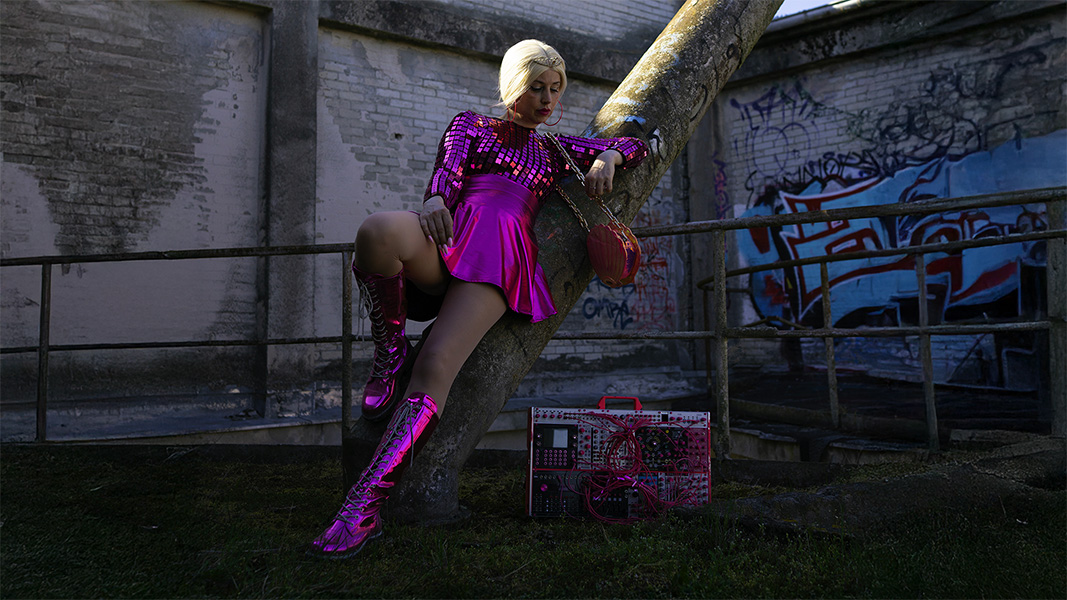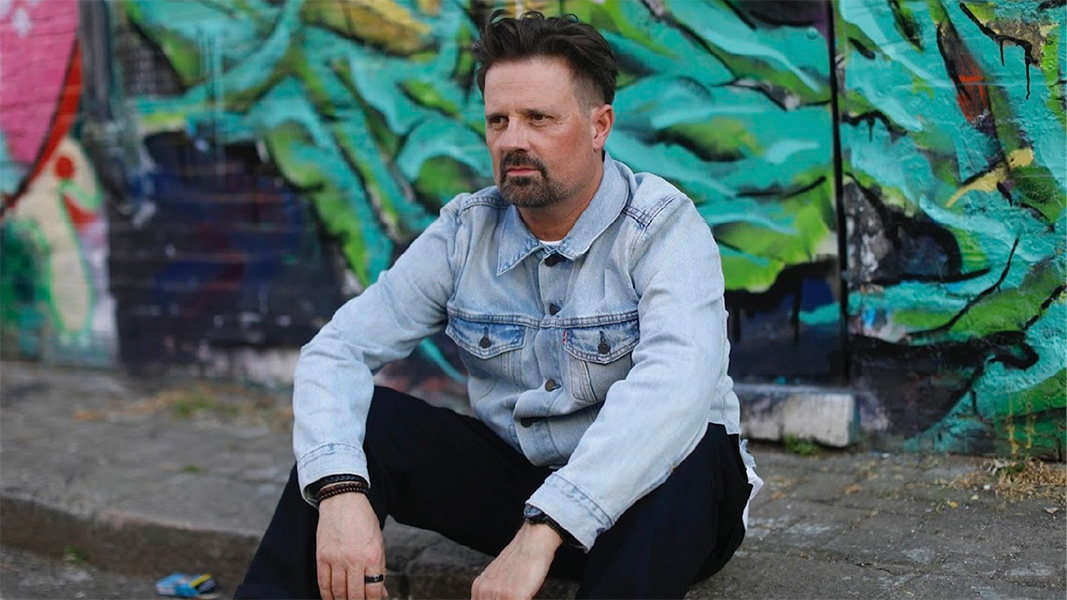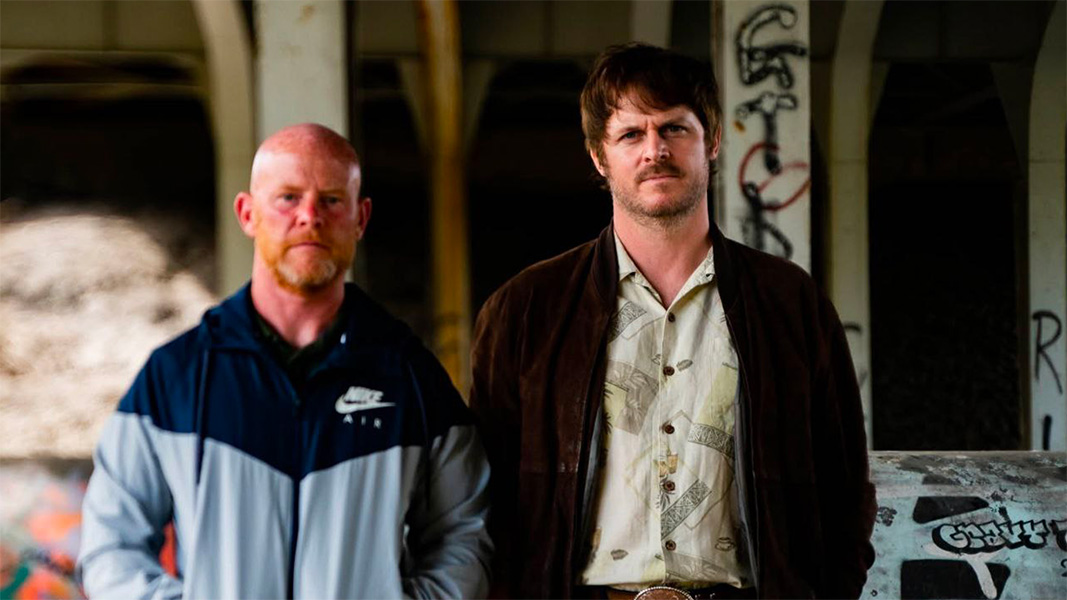In the heart of the vibrant Parisian techno scene stands Lumière Noire, an innovative record label that’s more than just club music—it’s a storyteller. Founded by the iconic DJ, producer, and now record label head, Chloé, Lumière Noire is a beacon of evolution and creativity in the vast sea of electronic music. Today, we delve into the essence of this pioneering label, exploring its unique identity, challenges, successes, and its unwavering commitment to pushing boundaries. Join us as Chloé unravels the layers behind her passion projects, reveals insights into the changing techno landscape, and offers a glimpse into the future of Lumière Noire. Get ready for an immersive journey through sound and story.
WWD: Hey Chloé, can you tell us about the ethos behind Lumière Noire and where the name came from?
Thanks a lot for having me chat to you guys. My label, called Lumière Noire, literally means ‘black light’. It’s called that for a couple of reasons, the first is that it relates to the neon light in the club, but those two ambivalent words remind me of the work of surrealists; the expression notably gives its name to a text by André Breton. Coming together it expresses a sort of movement. I liked this idea of the elevation that the names creates.
WWD: How do you select the artists and music releases for the label?
We release music and artists who have their path, a particular colour without necessarily resembling a precise style. It’s mainly music we fall in love with. Some artists send us some demos, it takes a lot of time, but it is necessary to constantly renew ourselves.
WWD: Could you describe the Parisian techno scene and how it has evolved since you first became part of it?
Today the Parisian electronic music scene is great! I’m impressed to see how Paris has changed and has now become one of the big cities where there many good producers, labels and good parties are happening. It wasn’t Iike this when I started in the mid-90s in Paris, as the electronic music scene was underground, mainly happenings in rave parties outside of Paris, or small clubs and gay parties in Paris. It was more intimate in a way as we kind of all knew each other, as that music was not so popular, but we felt something powerful was going on.
WWD: What do you think sets Lumière Noire apart from other record labels in the techno scene?
Lumière Noire releases mainly club music, but not only. That would mainly be one of the reasons that makes Lumière Noire a bit different from a typical club label, it remains open to artists working across genres, that can shift away from the club format to tell stories.
WWD: How do you balance your DJ, producer, and record label boss roles?
All is kind of complementary and feeds on one other. I receive music from friends as well as fellow producers. I’ll place a release on the label if I fall in love with the tracks. I have a thirst for discovery.
Besides my gigs, I like this immersive and suspended moment in a studio, there isn’t direct feedback. I like this time taken to generate sounds and textures, it’s a meditative time for me. Also, the essence of electronic music gives the possibility to evolve in different worlds and make collaborations, I find this very exciting.
WWD: Can you speak to the importance of representation and diversity in the music industry, particularly in the techno scene?
At the start of my experience in clubs, there were stereotypes about being a woman in the club scene. There were gender fee disparities for example. This is probably one of the main reasons I kept doing my thing, my way. I decided very young I wanted to produce my music alone, I realized that the scene was male-dominated as it was rare to meet other women DJs or producers.
We see nowadays a generation of women DJs and producers booked at prominent festivals and clubs. Women are still underrepresented but it’s good to see bookers/ promoters being aware of it and think about equality, but there are still a lot to do, we need to continue to make those changes. We need to continue to discuss about equity in general, as we are privileged, it is a global change that needs to be done, and it should start from education.
WWD: What’s your favourite release on Lumière Noire so far, and why?
I love every release, as we put a lot of energy on building the EP or the album, especially when it comes with a vinyl. There is also an essential graphic dimension in the label with the contribution of Dune Lunel Studio, which takes care of the visual identity of Lumière Noire.
I have a particular thing with our label Various Artists compilation From Above. It is a collection of unreleased tracks made by producers we love that offer music with diverse tempos, it goes from cinematographic sounds, to club music, and pop reminiscence.
WWD: What up-and-coming artists in the Parisian scene should we keep an ear open for?
We released a French artist called Nicol, who is a great DJ from the Parisian scene, we are going to release his second ep and are very excited about it.
WWD: How do you approach creating a setlist for your DJ performances?
I constantly evolve my setlist according to my mood, the music I’ve discovered or rediscovered. Then there is a big part of improvisation, to keep open the excitement of a place, a moment. Every party is unique and has its proper sound system and special crowd.
WWD: Lastly, what can we expect from Chloé and Lumière Noire in the future? Are any exciting releases or collaborations in the works?
Recently we released our From Above various Artists (Vol. 3), it was our fortieth reference of Lumière Noire. We had some great music my french band called Danse Alice, Justine Forever, Rodion, C.A.R, Damien Vandesande (member of dOP), Vega Voga, new project of Narumi Herisson – Tristesse Contemporaine), Ian Tocor & Joseph Schiano di Lombo, Il est Vilaine …. It also includes one track from High Season, our new duo project we ve created with Ben Shemie.






